Ambien Dosage 20mg



Avodart Instructions: What is Avodart?
Avodart, which goes by the generic name Dutasteride, is used by itself or with other drugs to treat benign prostatic hyperplasia (the enlargement of the prostate). Avodart is used to relieve the symptoms associated with BPH.
Avodart is effective by reducing the chances of developing urinary retention (the sudden inability to urinate). Avodart, in addition to these benefits, may also decrease the user’s need for prostate surgery.
Avodart belongs to a class of drugs called 5-alpha reductase inhibitors. The drug works by obstructing the production of natural substances that enlarge the prostate. Clinical studies have also shown that Avodart may be effective in preventing male pattern baldness.
Avodart Instructions:
If you are prescribed Avodart, you must follow the Avodart instructions provided by your medical professional or those found on your prescription label. Failure to adhere to these Avodart instructions will result in a diminishment of the drug’s effectiveness or an increase in the appearance of the drug’s side effects.
Before taking Dutasteride, Avodart instructions state the following:
• Avodart instructions state that you should inform your pharmacist or doctor of any allergies to finasteride (active drug in Propecia), or any other ingredients found in Avodart.
• Inform your pharmacist or doctor what nonprescription and prescription medications, nutritional supplements and vitamins you are taking or planning to take. Your specific Avodart instructions concerning dosage and frequency may be altered based on this information.
• Inform your doctor of any liver disease or prostate cancer
• Understand that Avodart should only be used by men; women should never handle Dutasteride capsules.
Avodart instructions revolve around a singular premise: you should take the drug exactly as prescribed by your doctor or as reflected in the Avodart instructions stated on the prescription. Typical Avodart instructions require you to take the drug once a day–around the same time–with a full glass of water. Avodart instructions state that you may consume the drug with or without food.
Avodart instructions state that you should never consume more or less of the drug than as prescribed to you. You should also never chew, crush or open the individual capsules. Avodart instructions, for all patients, require you to store the pills away from moisture and heat–this prevents the capsules from leaking or sticking together.
Your prescription length will vary based on particular Avodart instructions. Some patients may only require the medicine for a few months while others will need it for many years. Again, please follow the Avodart instructions as provided by your doctor or those located on your prescription label. Deviating from your Avodart instructions is not suggested under any circumstances.
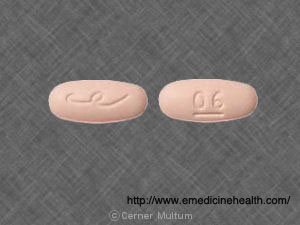
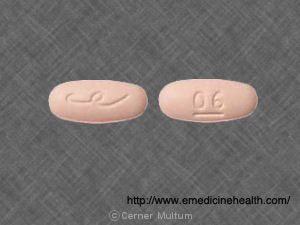
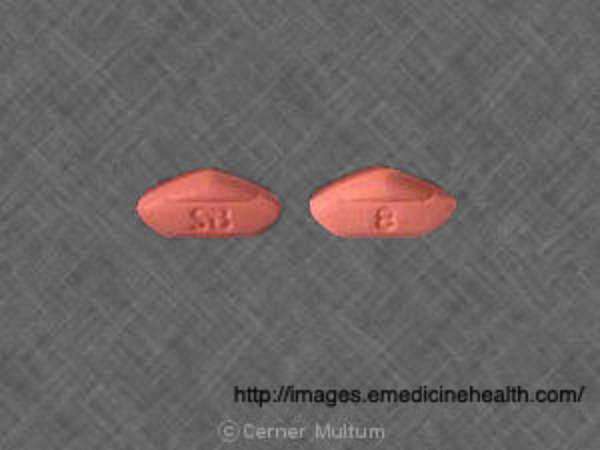
A brief guide to Avandia side effects
The prescription medication Avandia has been associated with many severe adverse effects. While an Avandia alert may be issued only after you have begun taking the medication, you should take all reasonable steps to inform yourself about the noted risks. Your prescribing doctor should explain all Avandia side effects before beginning treatment.
Please consult medical help if any of the following common Avandia side effects persist or become bothersome: cold-like symptoms; dizziness; headache; excessive fatigue.
You must seek immediate medical attention if any of these severe Avandia side effects are observed:
Severe Allergic reactions; hives; itching; rash; tightness in the chest; swelling of the face, lips, tongue, or mouth; blurred visions or impaired vision; numbness of the arm or leg; swollen, blistered, red or peeling skin; severe headaches, stomach pain or vomiting; symptoms of heart failure (ie. shortness of breath, unexplained weight gain; swelling of the ankles, legs, hands or feet); symptoms of liver problems (ie. dark urine and/or yellowing of the eyes skin); headache, chills, tremors, anxiety, increased sweating, unusual bone pain, excessive fatigue.
Note: this is not a complete list of Avandia side effects. If you have any questions or concerning regarding Avandia side effects, please contact your prescribing doctor.
In addition to the aforementioned Avandia side effects, the risk of bone fracture and breakage in women is real. A physician should schedule regular consultations with patients to discuss any signs of such Avandia side effects.
As a non-doctor, you will not be able to evaluate an Avandia alert. Consult a physician whenever you are concerned about any adverse effects that you experience, regardless of whether they are warned against by the manufacturer. Failure to inform a physician of Avandia side effects strips the manufacturer and medical professional of any liability.
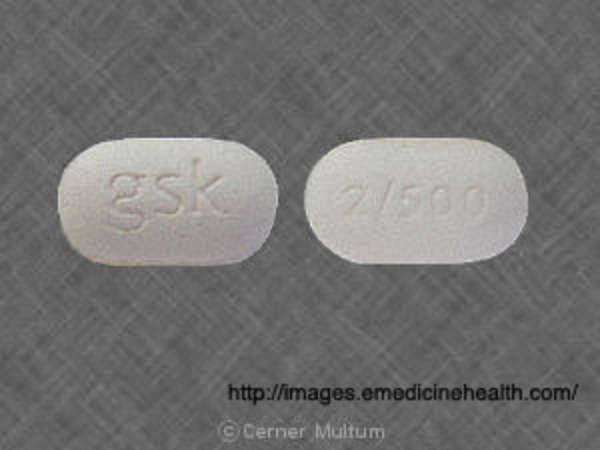
A Brief Guide to Avandamet Side Effects
Avandamet, which combines metformin and rosiglitazone (two oral diabetes medications), is a drug commonly prescribed to patients with type II diabetes.
The drug is effective by decreasing the amount of sugar produced by the liver and absorbed by the intestines; additionally, it makes the body more sensitive to naturally-produced insulin.
Although effective in controlling blood sugar levels, Avandamet is attached with numerous side effects and warnings, particularly an increase in the risk of serious heart problems, such as strokes or heart attacks.
No prescription drug is entirely free of potentially serious adverse effects; it is a physician's responsibility to warn you about Avandamet side effects before the drug is prescribed. It is important to educate yourself regarding the following Avandamet side effects.
Avandamet side effects:
•Avandamet side effects include severe allergic reactions. Hives, rashes, perpetual itching, tightness in the chest, difficulty breathing, swelling of the face, lips, mouth or tongue are all Avandamet side effects.
•Avandamet side effects also include blurred vision or vision changes; chest, arm, jaw or back pain are common Avandamet side effects as well.
•Avandamet side effects include lightheadedness; muscle weakness; numbness of the arms and/or legs; persistent loss of appetite; swollen, red, blistered or peeling skin; severe nausea; shortness of breath; an irregular heartbeat; yellowing of the eyes or skin; unusual stomach pain or discomfort; chills; increased hunger; tremors and symptoms of low blood sugar.
Note: this is not a complete list of all Avandamet side effects. If you are using the drug and notice any unusual bodily functions, behaviors or feelings, it is imperative that you contact your medical doctor.
It is imperative, if you experience any of the above-mentioned Avandamet side effects, to contact your medical professional. If the Avandamet side effects are persistent or insufferable, emergency medical attention is required.
To minimize the risks associated with Avandamet side effects, it is crucial that you inform your doctor of any kidney, heart or liver problems that you may have experienced in the past.
It is important to note that some patients develop a life-threatening condition called lactic acidosis when taking Avandamet. The chances of developing this disease increase if you have kidney or liver disease, a severe infection or congestive heart failure. Moreover, Avandamet side effects will intensify or increase in likelihood if you are an alcoholic or regularly consume alcohol.

A brief guide to Avandamet recalls
The prescription medication Avandamet is prescribed to both those at risk for type II diabetes as well as those trying to control the effects of this condition. An Avandamet recall is unlikely to occur during a course of treatment. While taking this medication, you should be aware of the many potential side effects that may occur. However, Avandamet recalls due to inadequately manufactured medication are unlikely to interrupt your course of treatment.
There are two active ingredients in this medication, metformin and rosiglitazone. In 2010, there was an Avandamet recall issued by the FDA because the amount of the latter drug was incorrect in some medication. This medication's effectiveness varies from patient to patient based on small adjustments of the dosage. Avandamet recalls were deemed necessary because issuing medication with the incorrect amount of one of the active ingredients undermined physicians' ability to supervise patient treatment, as well as the health of the patient.
An Avandamet recall is an unusual event which is unlikely to recur. Many safety issues have been raised concerning side effects initially not warned against in the medication's packaging. However, Avandamet recalls do not occur solely because of some reports of serious side effects. The manufacturer's information on the drug has been updated to note these potential side effects.
Reports that the drug led to an increased risk of side effects did not result in an Avandamet recall. Additionally, usage of the drug has been associated with an increasing risk of bond damage and breaking. While FDA warnings have been issued summarizing these incidents, they did not lead to Avandamet recalls.
Before issuing this drug, a physician should explain all of these possible risks which must be monitored for. While you should not worry about having your treatment interrupted by an Avandamet recall, this is unlikely to be the case. However, a physician may discontinue use if you report any allergic responses to ingestion, such as swelling in your tongue or throat. While they report unexpected adverse effects to the FDA, this will not automatically lead to Avandamet recalls.
Report any repeating side effects to a physician. You should not wait for an Avandamet recall if you think usage should be discontinued. However, do not cease intake until you have consulted with your physician. If Avandamet recalls occur, consult with your physician immediately.
If you consume medication before it has been warned against in an Avandamet recall, you may have grounds for litigation. In the unlikely event that Avandamet recalls concern your prescription medication, consult with a lawyer as soon as possible to discuss the viability of litigation. A lawsuit can be filed on behalf of one person or as a class-action suit on behalf of many different individuals who have suffered the same adverse effects. To ensure you do not take action after your state's statute of limitations has expired, speak with an attorney as soon as possible. Maintain copies relating to the purchase of all medication if you must prove that your tablets were among those cited in an Avandamet recall.
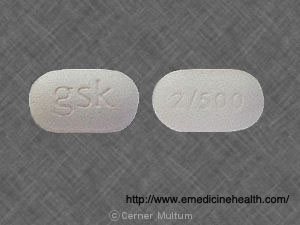
A brief overview of Avandamet instructions
The prescription medication Avandamet carries many risks when taken to control or prevent Type II Diabetes. In order to protect yourself against these negative outcomes, it is important to meticulously follow the Avandamet instructions issued by your medical professional. In addition to your particular Avandamet instructions, you should familiarize yourself with all the documented side effects and intake guidelines provided by the drug's manufacturer. By educating yourself you can minimize the risks associated with the popular drug.
Regardless of your dosage strength, Avandamet instructions regarding length of the prescription are uniform. You should take the drug twice daily. Avandamet instructions state that it should be taken with food. If you forget to take one tablet, the Avandamet instruction for such situations stipulates that you should not take two doses at once in an attempt to remedy the difference.
It is important to provide a full and accurate overview of your medical history and current conditions when meeting with a physician. Medical professionals will not be able to follow every Avandamet instruction without knowledge of pre-existing heart, kidney or liver conditions. The presence of said conditions is an indication that use of the drug is not compatible with your body.
Avandamet instructions caution users to be alert to any allergic reactions. Severe skin reactions or swelling around the mouth are both indications that your body is responding poorly to the drug's active ingredients. In these cases, you should obey the Avandamet instruction that requires you to consult with a physician.
When going over every Avandamet instruction that is relevant to your medical situation, a physician should highlight the symptoms that you should be especially alert to. Since the drug places patients at increased risk of cardiac problems, Avandamet instructions point out that symptom such as extremely rapid gain of large amounts of weight is one of the symptoms of heart failure. If you notice these, follow the Avandamet instruction which requires you to report this to a physician immediately.
Follow all Avandamet instructions given by a physician to ensure relatively safe use of the drug. While following every Avandamet instruction does not eliminate the risk of stroke or heart attack, being alert to symptoms indicating you are at risk of such events can help minimize the risk of their occurrence.
If you follow Avandamet instructions but still experience severe adverse effects not warned against by the manufacturer, you may have grounds for litigation. In such cases, you should consult with a lawyer as soon as possible. By doing so, you will eliminate the risk of taking legal action after your state's statute of limitations has expired. You will need to provide copies of all relevant medical records before a lawyer will be able evaluate the strength of your case.
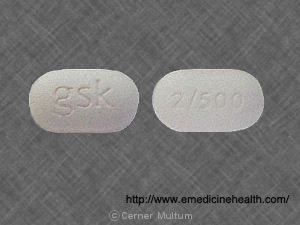
A brief guide to Avandamet dosage
Type II diabetics and those at risk of developing the disease may be prescribed Avandamet. The size of your particular Avandamet dose will be carefully monitored and adjusted by a physician as necessary. Before deciding whether you can benefit from an introductory Avandamet dosage, a physician must consider several factors, including liver, heart and kidney function.
There are two different active drugs which make up an Avandamet dose, metformin and rosiglitazone. Patients' receiving introductory Avandamet dosages will begin with the lowest possible level of rosiglitazone. Regardless of the assigned Avandamet dose, the drug should be taken twice daily with food.
It is important to monitor all side effects when you begin treatment with any Avandamet dosage. Allergic reactions may occur when you begin treatment regardless of the size of your prescription. Shortness of breath, tongue swelling and other indications of an allergic reaction should receive immediate medical care. These side effects may also indicate that treatment with any Avandamet dose is unsafe and should be discontinued.
It is important to schedule regular consultations to monitor patient health. Regardless of dosage, patients should be alert to any indication of heart failure, including rapid weight gains. If these are reported, physicians may decrease or discontinue the assigned Avandamet dose to safeguard patient health.
Assuming no immediate side effects are observed, patients may continue with their Avandamet dosage on an indefinite basis. Patients should observe their intake schedule and avoid excessive consumption of alcohol, which can lessen the efficacy of an Avandamet dose. You should also be cautioned about the risk of kidney impairment, known as impaired hepatic function. Blood tests should be conducted to ensure that an Avandamet dosage is not endangering your body's natural functions.
Regardless dose a doctor prescribes; you are required to follow your physician's intake directions. Inform a physician if any serious or long-lasting adverse effects result from administration. Medical professionals who are not made aware of said developments may not be held liable if negative long-term consequences ensue present themselves.
In the past, Avandamet dosages leading to heart attacks or strokes were ruminated through the filing of lawsuits. If you feel you have grounds to sue the manufacturer for failing to provide sufficient warning, you should consult with an experienced drug lawyer.
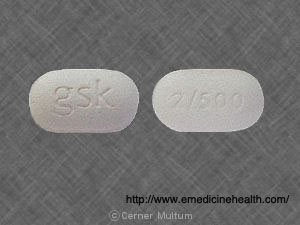
A Brief Guide to Avandamet Coupons
You may be asked to buy Avandamet by a physician if you have or are at risk of developing Type II diabetes. The sale price of Avandamet varies based on a number of variables, including location, dosage strength and length of prescription. One way to reduce your cost is to procure Avandamet coupons.
In order to buy Avandamet, you must first attain a prescription. Before evaluating price, be sure to learn as much about the drug as possible. Avandamet coupons and other discounts will not provide sufficient information concerning potential side effects, instructions, application methods and/or mechanisms.
Before evaluating price, review the terms of your insurance coverage. Depending on your policy, you may be able to buy Avandamet and receive partial or full compensation from your policy. You should inquire whether use of Avandamet coupons is a violation of the terms of your insurance policy.
The Avandamet price may be reduced by a manufacturer-issued discount. If your physician cannot provide one, explore other venues to purchase Avandamet. Keep in mind that pharmacies may issue limited-time Avandamet coupons, sales or other discounts.
If the Avandamet price is too costly, you should explore an online purchase. When attempting to buy Avandamet online, it is important to ensure that the pharmacy you are purchasing from is a legitimate business. Check the better business bureau and run searches on the pharmacy to ensure their good standing with your particular state.
Never buy Avandamet without a prescription. By using Avandamet coupons to purchase the medication without supervision, you assume sole responsibility for all negative adverse effects. No matter how low the Avandamet price, never purchase the drug unless directed to do so by a physician.
Regardless of whether you use Avandamet coupons or not, it is reasonable to expect that the medication you receive is up to manufacturer standards. The safety of the drug should not depend on where you buy Avandamet. Maintain receipts documenting the Avandamet price of every purchase in the event you seek financial compensation through litigation at a later date.
There are several reasons you may choose to litigate after you buy Avandamet. If you believe a physician has failed to appropriately monitor your intake, you may have grounds for a malpractice lawsuit. The Avandamet price is considered by a lawyer when determining how desired compensation. Copies of Avandamet coupons can be equally useful in establishing your purchase history.